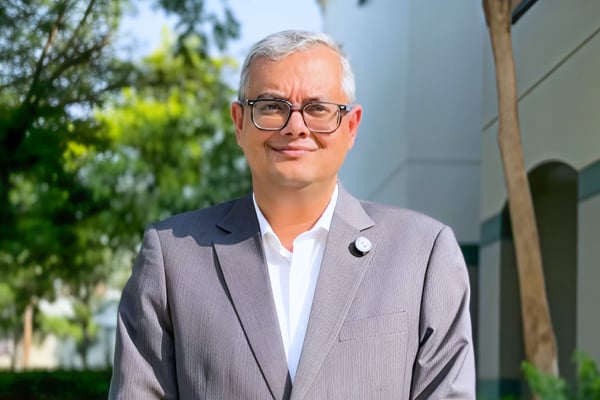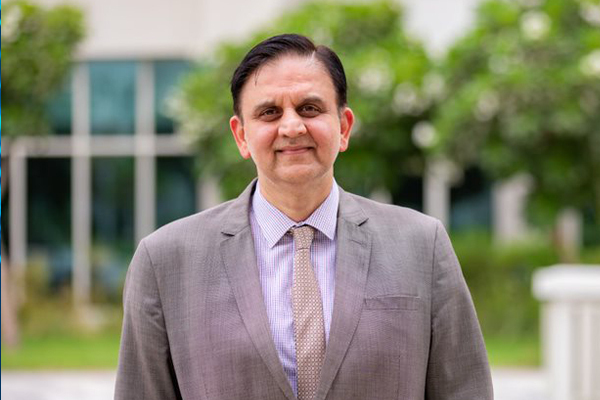Degrees don’t guarantee survival anymore. In a world where AI evolves daily and industries collapse overnight, the only skill that matters is how fast you can learn. In this article, Nitish Jain, President of SP Jain Global, explains why meta learning is the defining skill of our time, and why your future depends on it.

On 30th November 2022, OpenAI released ChatGPT. By the first week of December, professors were rewriting exam formats, marketing teams were scrapping campaigns, and junior coders were staring at screens as machines generated in seconds what once took them hours. One ordinary Wednesday and entire professions were shaken.
If one free tool could cause that much chaos in a few days, what happens when a hundred such tools arrive? Or a thousand? Do you really think your current knowledge will protect you?
The reality is brutal. The average shelf life of a skill has dropped to about five years. In fields like AI and data science, it’s closer to eighteen months. Half of what you know today will be useless tomorrow.
Think of this: Kodak engineers once knew more about photography than anyone on earth. Nokia executives once dominated mobile phones. Taxi unions once thought regulation would shield them from disruption. Every one of them was blindsided. They didn’t fail because they lacked intelligence. They failed because they couldn’t unlearn fast enough, and they couldn’t relearn fast enough.
Knowledge expires. Learning agility doesn’t. That is meta learning. And it is, in my view, the single most important skill in the world today.
What Meta Learning Really Means
Meta learning isn’t about collecting more degrees or memorizing faster. It’s the discipline of learning how to learn and learn quickly. The person who can enter an unfamiliar field and build competence in weeks will always outperform the one who clings to past expertise.
I’ve seen this up close. A young graduate of ours joined an investment firm in Dubai. Within weeks, he was asked to advise on digital assets—something he had never studied formally. Instead of panicking, he dove headfirst into research, shadowed crypto traders, grilled his mentors, and used AI tools to accelerate his understanding. In less than a month, he wasn’t just holding his own in client meetings and leading them. His success didn’t come from prior knowledge. It came from learning speed. That is meta learning in action.
Why universities are failing students
The tragedy is that most universities don’t prepare students for this. They serve up static curricula, test memory, and pretend the world outside isn’t shifting beneath their feet. You graduate with a certificate that already looks stale.
At SP Jain Global, we decided years ago that this was unacceptable. If our students can’t learn fast, they fail, and that’s intentional. Because out in the real world, failure costs more than a grade.
We push students into live business problems where there are no textbook answers. We rotate them across cities—Singapore, Dubai, London, Sydney, the US—where every new culture and market demands rapid adaptation. We built our own AI tutors trained on our curriculum, not as gimmicks, but as accelerators of learning. They push, probe, and challenge students daily. The aim is not to make students comfortable, but to train them to think, adapt, and absorb knowledge at speed.
Why CEOs bet on fast learners, not experts
Talk to any CEO and you’ll hear the same fear: markets may rise and fall, but the real crisis is talent. Not just any talent—talent that can handle the unknown. When AI rewrites workflows, when new regulations tear up old playbooks, when an entire business model collapses overnight, the people who keep their jobs are not the ones with the longest résumés. They’re the ones who can learn on Monday and deliver on Friday.
I’ve seen professionals in industries like hospitality face disruption from platforms like Airbnb. Some resisted and were left behind. Others immersed themselves in platform economics, learned how digital ecosystems operate, and rebuilt their careers at the intersection of tech and their original field. The difference wasn’t background or experience; it was how quickly they could learn and adapt.
That’s the difference. In today’s world, companies don’t hire you for what you know. They hire you for how you learn.
A personal challenge to you
So I ask you directly: how fast can you learn something you know nothing about? Can you walk into a new industry and become competent in weeks? Can you unlearn the habits that slow you down? Can you master a tool before your competitor does?
If the answer is no, then understand this—you are vulnerable. Because your degree won’t save you. Your title won’t save you. Only your ability to learn will.
The people who thrive in the next decade will not be those with the most knowledge. They will be those who learn fastest when the ground shifts beneath them. That is meta learning. And in a world this unforgiving, if you don’t master it now—you may not get the chance at all.
By Nitish Jain, President, SP Jain School of Global Management











